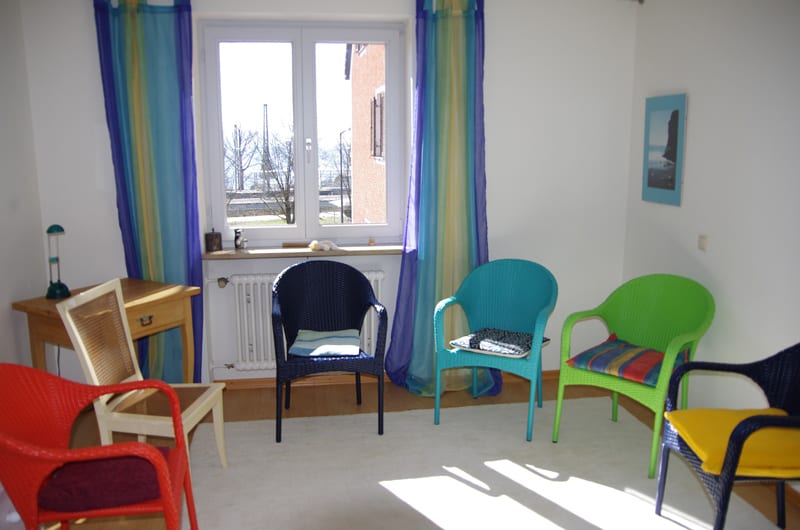When it comes to substance abuse or mental health problems, you may have looked into the benefits that therapy can have for you. However, you may have overlooked the positive impact group counseling can have on your situation and your psyche
When you are looking for help for a substance abuse or mental health problem, it is important to explore all the avenues and options. Group counseling or therapy is one tool that can be used to improve your situation and learn ways to overcome whatever problem you or your loved one may be dealing with.
Many people may understand the benefits of one-on-one therapy, but some may fail to see how group counseling may be able to help. Let’s take a look at some of the benefits and advantages of going to group counseling.
Advantages of Group Counseling
While individual therapy can be extremely beneficial, and may be better for some specifically, group counseling is also worth considering. If you are concerned about the value of group counseling, that’s natural.
However, there are a number of positives to going to group counseling or therapy sessions.
One of the most important benefits of group counseling is that it provides members with the opportunity to learn from other people who may be or have been in similar situations or predicaments. It gives people an opportunity to learn with and from others, and allows others to see attitudes or behaviors that can be difficult to see in oneself.
Group counseling provides a different point of view, which allows participants to receive genuine support and feedback from peers. Therapy can be less intimidating this way, as it can feel like a group of like-minded people are just speaking with one another.
It can also help people who may feel alone or isolated. If they understand that there are others who are experiencing the same problems that they are, it can go a long way toward remedying their sense of isolation.
For problems with substance abuse, group therapy can be especially helpful. Not only can participants learn coping strategies that others have found helpful, they can also see the recovery of others in progress. Witnessing the recovery and sobriety of someone else can be a motivating and insightful experience. It can help instill the sense that “If this person made it, so can I,” which can boost motivation and strengthen long-term sobriety.
It should be noted that the peer support and sense of unity that is present during group therapy can be immensely helpful for those who are in recovery and feel they are fighting an uphill battle. This type of engagement will help build participants’ sober support networks and give them people they can talk to if they are feeling pressured or experiencing urges to use again.
Whether you are trying to overcome social anxiety, learn how to stop drinking, or fix another problem, group counseling can provide multiple benefits that you may have not previously been aware of.
Now that we understand that group counseling can be beneficial and can hold a number of different benefits, let’s take a look at how family therapy can help.
Family Therapy
One of the most common and effective forms of group counseling is family therapy. The problems that people reach out for help with, whether substance abuse, depression, or something else, are likely things that have affected not just the individual, but the entire family unit. This is where family therapy comes in.
The family plays an important role in the treatment of any health problem. In fact, family work has become common and is a continuing theme in many types of treatment approaches.
Family therapy seeks to do a few things. It uses the strengths of the family unit to help participants develop ways to live without abusing substances, or to learn strategies to work together and overcome problems, such as addiction, depression, and anxiety.
Family therapy can be incredibly impactful and cathartic as it is a great way to increase communication and rebuild damaged relationships, as well as begin to create a support network for a loved one.
Overall, group therapy and family counseling sessions can provide a number of positive benefits and advantages to those looking for help. If you are looking for treatment for some type of mental health problem, you should consider group therapy.
Group therapy, whether it is family therapy or another form of counseling, can give participants access to both therapists and peers who can help them and provide them with advice and support. While it is debatable whether it is more or less effective than one-on-one therapy, it is still highly beneficial to participate in this type of counseling.
If you or someone you know experiences mental health issues, it is important to seek help from a qualified professional. Our Resource Specialist can help you find expert mental health resources to recover in your community. Contact us now for more information on this free service to our users.
Author Bio: Matthew Boyle is the Chief Operating Officer of Landmark Recovery, a growing group of drug and alcohol rehabs in Indiana and Kentucky. Matthew graduated from Duke University in 2011 Summa Cum Laude with a Bachelor of Arts degree and has worked in the healthcare industry ever since, creating a holistic treatment model that supports patients in the pursuit of achieving lifelong sobriety.
Image by griffert from Pixabay
The opinions and views expressed in this guest blog do not necessarily reflect those of www.rtor.org or its sponsor, Laurel House, Inc. The author and www.rtor.org have no affiliations with any products or services mentioned in this article or linked to herein.
Recommended for You
- Why Eating Disorders in Men Are Often Missed - July 3, 2025
- No More Silence: The Opioid Epidemic’s Alarming Impact on Women - June 30, 2025
- The Hidden Impact of Repressed Memories on Mental Health and How to Heal - June 26, 2025





